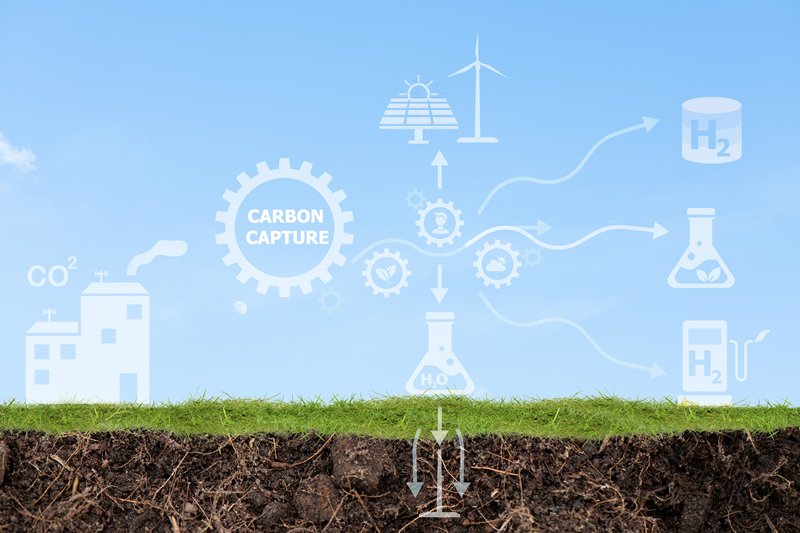DESNZ Carbon Capture Business & Waste Industrial Model Launched
6
The Subsidy Advice Unit (SAU) has released a detailed report offering advice to the Department for Energy Security and Net Zero (DESNZ) on proposed subsidy schemes for Industrial Carbon Capture (ICC) and Waste ICC business models.

Overview of the Report
The report evaluates DESNZ’s assessment of the compliance of the proposed schemes with the requirements outlined in the Subsidy Control Act 2022. This evaluation forms a critical part of ensuring that the ICC and Waste ICC subsidy schemes align with legislative standards while addressing the UK’s decarbonisation goals.
Objectives of the ICC and Waste ICC Schemes
The Industrial Carbon Capture (ICC) and Waste ICC business models aim to:
- Incentivise the deployment and operation of Carbon Capture, Usage, and Storage (CCUS) technology.
- Support industrial users and residual waste management facilities, which often lack viable alternatives for achieving deep decarbonisation.
The budget for these schemes is up to £8.35 billion, contributing to a broader suite of measures designed to deploy CCUS at the scale and pace necessary to meet Carbon Budget 6 and achieve Net Zero by 2050.
Challenges Addressed by the Schemes
Industrial and waste emitters currently face significant barriers to adopting CCUS due to:
- High Costs: The expense of constructing and operating CCUS systems exceeds the costs incurred through carbon dioxide emissions penalties under the UK Emission Trading Scheme (UK ETS).
- Market Gaps and Risks: Emitters encounter challenges such as cross-chain risks and first-mover disadvantages, further disincentivizing CCUS deployment.
Key Features of the Schemes
1. Revenue Support Contracts:
- A private law contract for up to 15 years, structured as an initial 10-year period with annual extensions for up to five additional years.
- Payments per tonne of captured CO2 to cover operational expenses, CO2 Transport and Storage (T&S) charges, and capital investment repayment with a rate of return.
- For ICC projects, protection of UK ETS Free Allowances revenues to reduce emitter risks and minimize market distortions.
- A framework modelled on the Contract for Difference structure.
2. Capital Grant Co-Funding:
- Co-funding to bridge financing gaps for CCUS projects.
- Designed to reduce overall subsidies required, improving affordability and ensuring value for money for the government.
Funding Sources
- Revenue Support Contracts: Financed through the Industrial Decarbonisation and Hydrogen Revenue Scheme.
- Capex Co-Funding: Provided via the CCUS Infrastructure Fund.
About DESNZ
The Department for Energy Security and Net Zero (DESNZ) was established on February 7, 2023, during a cabinet reshuffle under the previous Prime Minister Rishi Sunak. This new department assumed the energy policy responsibilities previously managed by the Department for Business, Energy, and Industrial Strategy (BEIS). DESNZ’s mission includes advancing the UK’s energy security and progressing toward net zero targets.
#Protea #Emissions #Monitoring #CEMS #FTIR #Gas #Analysers #Shipping #Marine #Carbon #Capture
Other Articles
The EU Emissions Trading System ETS In A Nutshell
02
Rising Carbon Costs Drive The Need For Accurate Emissions Management In European Shipping
26
Carbon Capture Utilisation & Storage (CCUS) In 2026
16
Global Underground CO2 Storage Data Offers Hope Amid Rising Emissions
01
IMO Postpones Adoption Of Global Net-Zero Shipping Framework
04
Pioneering Carbon Capture Projects Ready For Construction
03
Methanol & Ammonia Deemed Ready As Zero-Emission Shipping Fuels
01
Carbon Capture Storage Reaching A Turning Point In Decarbonisation
13
CCS To Capture 15% Of Shipboard Carbon Emissions By 2050
29
Global Shipping Industry Struggles To Navigate Net Zero Transition
21